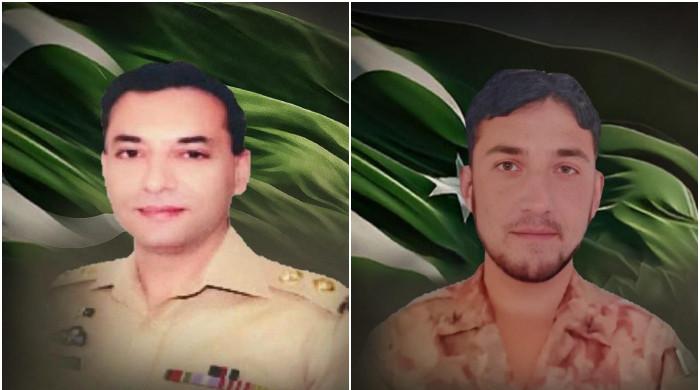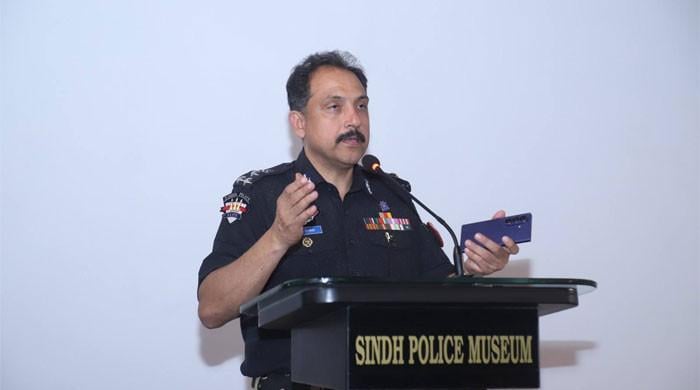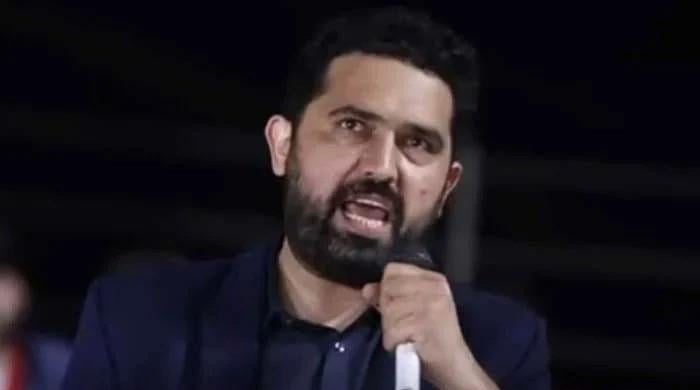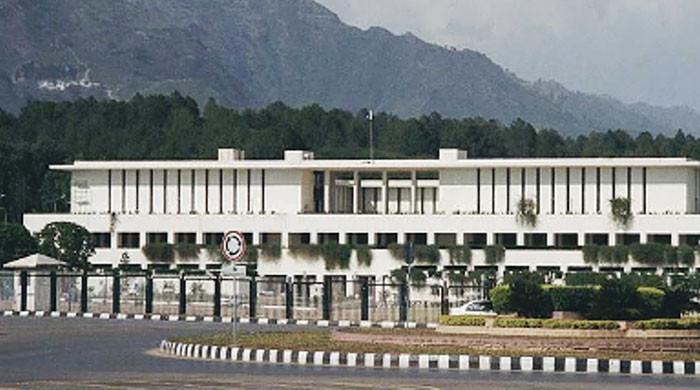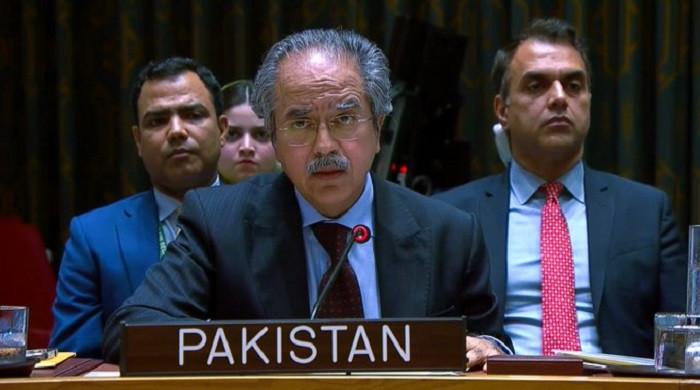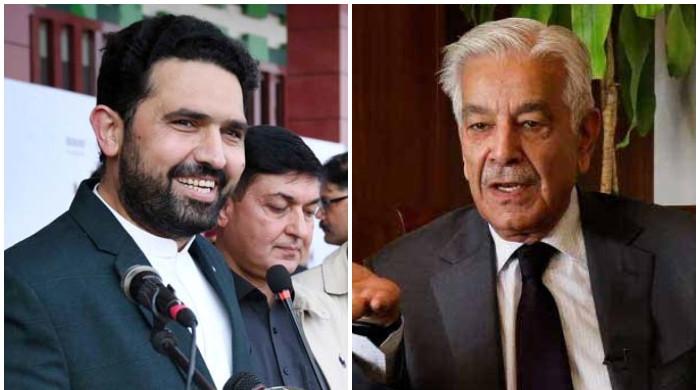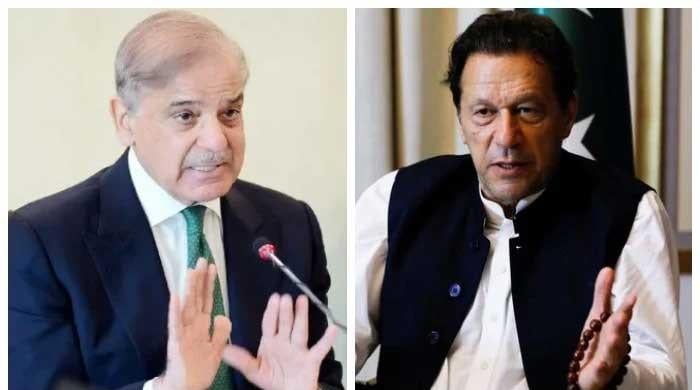President Alvi says mosques will remain open for tarawih, urges precaution while observing prayers
President Alvi appeals to the masses to donate generously to madressahs, mosques and welfare organisations
April 18, 2020
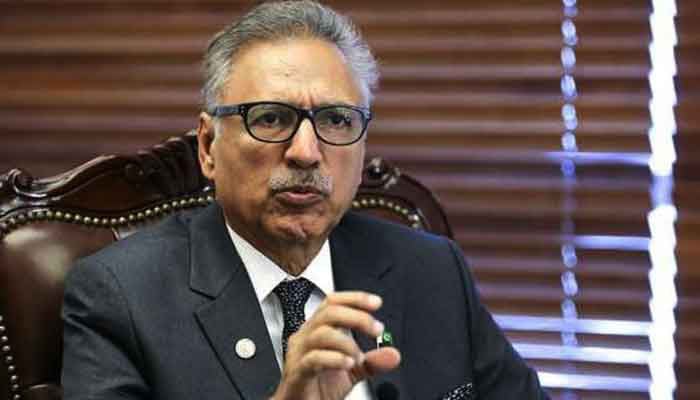
President Arif Alvi on Saturday, while announcing that mosques will remain open for tarawih prayers in Ramazan, urged citizens and religious leaders alike to exercise discipline and take precautions against the coronavirus pandemic when coming to mosques.
While presiding over a meeting with ulema in Islamabad, the president also appealed to the masses to donate generously during the coming month of Ramazan since many madressahs, mosques and welfare organisations looked forward to these funds for covering their routine expenses.
“As per the foundations of Islamic society, we as a nation should exhibit discipline, coherence and national uniformity as we continue our battle against the coronavirus,” the president asserted, adding that we [as a nation] can curb the spread of the virus in the holy month of Ramazan by staying away from crowds and unnecessary gatherings.
'People want to see political, religious leaders on same page'
The president maintained that the people of Pakistan wanted to see their political and religious leaders on the same page and any conflict in this regard would be counterproductive.
“We have sought proposals from the provincial governments to incorporate their point of view while deciding in this regard,” the president said, adding that Interior Minister Ijaz Shah is in touch with the provincial governments in this regard.
“We will ask for forgiveness and salvation during this holy month,” the president said, adding that he was hopeful that all preventive measures will be taken to curb the spread of coronavirus during Ramazan.
"The virus prevention strategy for the holy month of Ramazan will be devised after developing a consensus with religious leaders. In today's meeting, consensus on 20 points has been developed," he said.
"The success of the strategy depends not only on the government or the religious leaders but on every single individual," he added. "As part of the virus prevention, carpets will not be laid in mosques," he said.
"For the tarawih prayers, people should avoid congregating outside mosques or on footpaths along the road. People should avoid gathering in large numbers outside mosques after prayers," he said.
'Ensure there is space between people praying'
President Alvi also asked religious leaders across the country to ensure that there was a space between people when they congregated inside mosques for prayers.
"The floors of mosques across the country will be cleaned with chlorine to disinfect them. Markers will also be made on the ground for the people to stand when they pray," he said.
"Prospering nations do not follow rules and regulations forcefully but with free will, therefore administration can help us in enforcing the decided SOPs but it is the job of citizens to ensure that all precautionary measures are fully implemented," he affirmed.
20-point agreement
The following are the 20 points agreed upon during the meeting:
1. No carpets or dariyaan (mats) to be laid down in mosques because the virus is airborne. Clean floors for prayers must be ensured.
2. If people want to bring prayer mats from home they may do so.
3. No gatherings after namaz/tarawih will be permitted.
4. If a mosque has an open area/garden it is preferable to conduct prayers there.
5. People over 50 years of age, children should not be allowed in mosques.
6. Everyone must follow the instructions of social distancing by WHO and other health experts.
7. Tarawih should not be conducted on roads, footpaths and anywhere else than the mosque premises.
8. People should continue to keep observing regular prayers at home.
9. Masjid, Imambargah floors should be washed with chlorinated water regularly.
10. There should be a six-feet distance during congregational prayers/
11. The mosque should form committees to ensure that people are abiding by the rules and decided SOPs.
12. Markers should be made on the floors of mosques and Imambargahs to guide people about the distance they should keep from others.
13. People should do ablution at home.
14. People must wear face masks when coming to mosques and maintain physical distance.
15. People must avoid handshakes.
16. Itikaf must be observed at home.
17. No one must prepare or hold Sehri and Iftaar in mosques.
18. Mosque committees should be in constant contact with the provincial government.
19. Mosques committees are allowed to conduct tarawih under these SOPs.
20. If during Ramazan, government authorities feel that the situation has got out of control and the number of cases surge, the authorities can review the decisions taken.
'Hopeful ulema will cooperate'
Earlier on Friday, Federal Minister for Religious Affairs Noorul Haq Qadri had said he was hopeful that the ulema would cooperate and adopt a ‘middle path’ while organising events for the coming month of Ramazan.
Speaking to the media, Qadri had said that during these challenging times, religious scholars were expected to show seriousness on the matter.
The minister also asserted that the incumbent government had taken all steps to ensure the health and well-being of its people and if the number for coronavirus cases surge because of any negligence, the situation will be out of control.
Assuring that the ulemas’ stance would not be ignored while crucial decisions are made, Qadri said that the government had imposed a partial lockdown across the country and had not issued directives to close mosques completely. Instead, officials have instructed to reduce the crowd at places of worship to contain the spread of coronavirus, he said.




